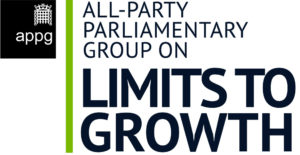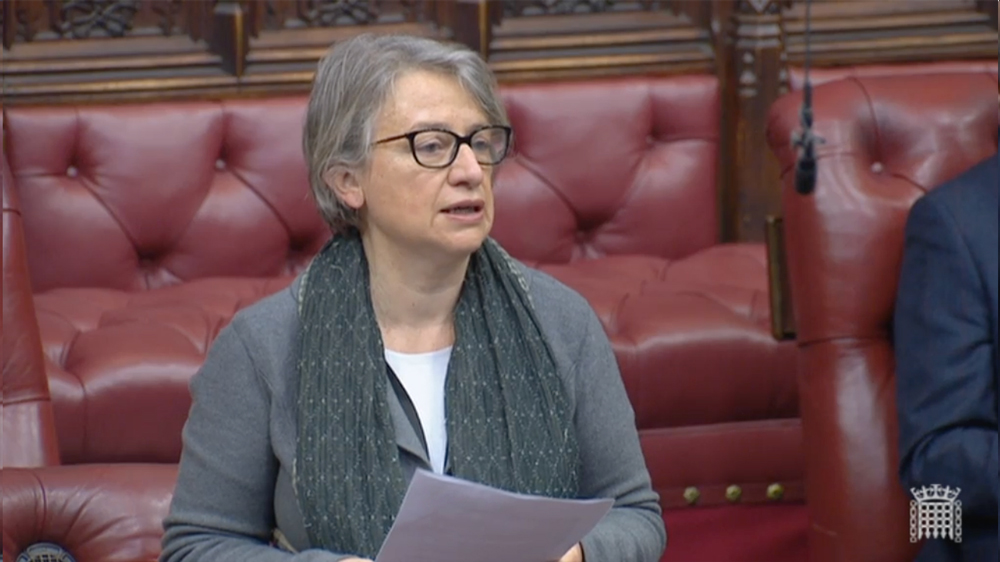1: Introduction
This briefing note covers Health and Care Bill Committee stage amendments 237, 238 and 239. They seek to address the use of predatory financial practices by private sector firms operating in the adult social care sector. They have been tabled by Baroness Bennett of Manor Castle and are currently scheduled for debate on Friday, 4 February 2022.
Update: The debate has now taken place. A ▶️ video recording can be accessed via parliament.tv.
2: The problem of predatory financial practices in social care
The increasing involvement of private equity firms, hedge funds and other financial entities in adult social care is draining the sector of vital funds that could otherwise go to frontline service provision. This is the result of mounting financial costs associated with complex corporate group structures, high debt burdens and the offshoring of profits.
- According to data from the Care Quality Commission, such firms now own one in eight care home beds in England.
Predatory financial practices, such as debt-leveraging and asset stripping, create exorbitant financial costs [i] which exert additional pressure on local authority finances, personal savings and workforce pay. This ‘financialisation’ is also compromising the long-term economic stability of the sector. Research has found that:
- As much as one sixth of the weekly fee for a residential bed goes towards interest payments on company debt within financialised care homes.[ii]
- Debt-leveraged buyouts, like those prevalent in the care sector, can increase risk of bankruptcy for the target firms by as much as 18%.[iii]
- Care homes owned by investment firms have worse patient outcomes, with a study of 15,000 US care homes finding that there was a 10% increase in mortality associated with private equity [iv]
- Debt-laden financial models have contributed towards prominent failures in the sector such as the collapses of Southern Cross in 2011, and Four Seasons Health Care in 2019.
The need to address the use of predatory financial practices in the care sector was raised during the second reading of the Health and Care Bill in the Lords. There have also been cross-party calls for action in the Commons via Early Day Motion 767.
The most recent episode of BBC Panorama’s Crisis in Care series, Follow the Money, investigates the opaque financial models of some of the largest social care businesses in the UK, revealing the financial and social impacts for families with loved ones in these homes. It features frontline care workers, academic experts, and the Rt Hon Jeremy Hunt MP, Chair of the Health and Social Care Select Committee.
3: Amendments to the Health and Care Bill
The amendments that help tackle the use of predatory financial practices in adult social care are:
- Amendment 237: ensuring financial assistance given to private sector care providers by the Secretary of State is not distributed to shareholders or used to repay debt obligations.
- Amendment 238: requiring a review of the adequacy of the financial regulation of companies providing social care.
- Amendment 239: requiring corporate entities registered or with parent companies offshore or in tax havens that are providing social care services in England to publish full group accounts, as companies registered in the UK are already required to do.
Each amendment is set out in more detail below.
Amendment 237: Financial Assistance
This amendment to would prevent the new ‘financial assistance’ provisions in Clause 141 from being used to bail out overindebted care providers.
Clause 141 introduces a new measure that would enable the Secretary of State to provide financial assistance to for-profit entities – something he can’t currently do. The intention behind the clause is broadly sensible. But as currently written, there is nothing to prevent it from being used to rescue overindebted care companies in financial difficulty. This would effectively position the Government as a financial backstop for social care investors, potentially encouraging risky debt-financing, and ultimately serving to protect investor returns, rather than quality of care.
This amendment would address that risk, by prohibiting financial assistance for the purpose of making payments on the debt obligations of for-profit bodies or making distributions to shareholders.
Text of amendment 237
Clause 141
237 Page 119, line 17, at end insert—
“(c) after subsection(2)insert—
“(3) No financial assistance provided under this section may be used
for the purposes of—
(a) repaying debt;
(b) paying interest on debt;
(c) making distributions to shareholders.””
Member’s explanatory statement
This amendment ensures that financial assistance given by the Secretary of State is not distributed to shareholders or used to repay debt obligations.
Amendment 238: Review of financial regulation
Amendment 238 requires the Secretary of State to carry out a review of financial regulations governing the adult social care sector.
This review would assess the adequacy of current regulations from the perspective of the quality of care provided, the pay and conditions for care workers, the costs to local authorities and other commissioning bodies, and risks to the economic stability of the sector. It would also consider the desirability of new measures, such as:
- Requiring any that company or group providing social care services be registered in the UK;
- Imposing restrictions on when companies can sell or transfer care home assets in the UK;
- Requiring companies providing social care to meet certain financial criteria, such as specified debt-to-asset ratios.
The goal of the review would be to identify effective ways to reduce the large financial costs and risks that are created by predatory financing practices such as debt-loading, asset-stripping and the offshoring of profits.
Text of amendment 238
After Clause 141
Insert the following new Clause—
“Review of financial regulation of companies providing social care
(1) Within six months of the passing of this Act, the Secretary of State must carry out and publish a review of the financial regulation of companies providing social care with a view to ensuring it supports the effective provision of social care.
(2) The review in subsection (1) must consider the impacts of regulation on—
(a) the quality of care provided;
(b) pay and conditions for care workers;
(c) costs to local authorities and other commissioning bodies;
(d) risks to the stability and viability of the social care sector.
(3) The review must include analysis of the following options for the future of the financial regulation of the social care sector—
(a) requiring any company or group providing social care services to be registered in the United Kingdom;
(b) imposing restrictions on when companies can sell or transfer care home assets in the United Kingdom;
(c) requiring companies providing social care to meet certain financial criteria, such as specified debt-to-asset ratios.”
Member’s explanatory statement
This amendment would require a review of the impacts of financial regulation on the social care sector.
Amendment 239: Financial Transparency of Offshore entities
The legal requirement under the Companies Act 2006 for companies registered in the UK (or with a parent company registered in the UK) to publish their annual financial accounts in public is a key pillar of financial transparency in the UK. It is the reason that researchers and journalists have been able to reveal some of the predatory financial practices of large social care providers.
However, for many of these corporate groups, we still do not have a complete financial picture. This is because many have parent companies based in offshore locations such as the Cayman Islands or Jersey, where it is not always a legal requirement to publish full annual financial accounts in public.
This proposed amendment would require that any related companies within the same corporate group (i.e. under that same ultimate parent company), that are registered offshore, would be under the same financial reporting and publication requirements as those bodies registered in the UK.
This amendment would ensure that companies who wish to deliver social care in the UK offer a complete picture of their financial accounts at the group level (including expenditure on dividends, directors’ fees, interest payments, etc.), even for those parts that are registered offshore.
Text of amendment 239
Insert the following new Clause—
“Financial transparency of offshore corporate groups providing social care
(1) Public commissioning bodies in England may not commission social care services from any company not domiciled in the United Kingdom which does not publish full annual accounts.
(2) Where a company is part of a group, the accounts referred to in subsection (1) must provide a complete picture of all related companies within the group.”
Member’s explanatory statement
This amendment would require corporate entities registered or with parent companies offshore or in tax havens that are providing social care services in England to publish full group accounts, as companies registered in the UK are already required to do.
4: Contact details and further information
For any questions or further information, please contact the APPG on Limits to Growth appg@limits2growth.org.uk or Christine Corlet Walker, Centre for the Understanding of Sustainable Prosperity (CUSP), University of Surrey, c.corlet@surrey.ac.uk
Resources
- BBC Panorama—Crisis in Care: Follow the Money, on iplayer, first broadcast December 2021. https://www.bbc.co.uk/programmes/m0012cbj
- Predatory financial tactics are putting the very survival of the UK care system at risk, The Guardian, August 2021. https://theguardian.com/commentisfree/2021/aug/10/predatory-financial-tactics-survival-uk-care-system-at-risk
- Care homes: why investment firms can be bad owners, The Conversation, April 2021
- Careless Finance—Operational and economic fragility in adult social care, April 2021, Centre for the Understanding of Sustainable Prosperity, University of Surrey. Paper summarized and available from https://theconversation.com/care-homes-why-investment-firms-can-be-bad-owners-158492
- Tackling growth dependency—the case of adult social care, APPG on Limits to Growth Briefing Paper, July 2021. https://limits2growth.org.uk/publication/tackling-growth-dependency-aetw-briefing-no4/
- Early Day Motion 767: Predatory financial practices and the adult social care sector, tabled 10 December 2021. https://edm.parliament.uk/early-day-motion/59258
Video
References
i Corlet Walker C, Druckman A and T Jackson 2021. Careless finance: Operational and economic fragility in adult social care. CUSP Working Paper No 26. Guildford: Centre for the Understanding of Sustainable Prosperity. Available at: https://cusp.ac.uk/themes/aetw/wp26-careless-finance/.
ii Kotecha V 2019. Plugging the leaks in the UK care home industry. Strategies for resolving the financial crisis in the residential and nursing home sector. London, UK: Centre for Health and the Public Interest, pp. 1–53. Available at: https://chpi.org.uk/papers/reports/plugging-the-leaks-in-the-uk-care-home-industry/
iii Ayash B and M Rastad 2021. Leveraged buyouts and financial distress’, Finance Research Letters. Elsevier Inc., 38 (October 2019), p. 101452. https://doi.org/10.1016/j.frl.2020.101452
iv Gupta A et al 2021. Does Private Equity Investment in Healthcare Benefit Patients? Evidence from Nursing Homes, NBER WORKING PAPER SERIES. Cambridge, MA, pp. 1–76 https://www.nber.org/papers/w28474


